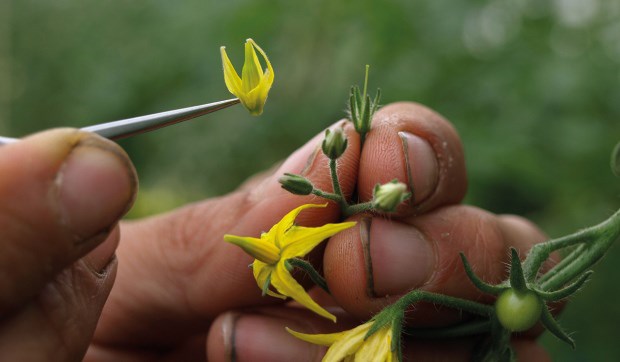When it comes to plant breeding having public investment has always been something this writer has felt is important.
It is nice to know that those involved in the science feel the same way, as was pointed out in a recent article sent out by the American Society of Agronomy.
The Society, in combination with the Soil Science Society of America, and the Crop Science Society of America: collectively represent more than 12,000 individual members around the world. The scientists’ memberships build collaborating partnerships in the agronomy, crops, and soils science fields for the advancement of knowledge.
In the article the group advocates for support of public plant breeding programs.
But public money is tighter across most areas of research, so making sure governments, and other sources of public dollars such as universities, recognize the importance of plant breeding remains important.
From the perspective of the farmer there is obviously good understanding of the importance of creating new grain and oilseed varieties in relation to increasing productivity.
There is a finite amount of land capable of growing food crops worldwide, but the world population relying on that land for food, continues to grow.
Since new land is not an option in most cases, in fact thanks to desertification, increasing urbanization and other factors there is a likelihood of a shrinking land base.
So the only option moving forward is to increase production, and a big part of that comes through better varieties. Certainly most varieties grown today have the genetic potential to produce more bushels per acre than those grown only a decade or two ago.
Plant breeders also offer the potential for better production in more than just greater bushels per acre. Genetics offer the potential to expand crop production into higher saline areas, to better utilize fertilizer and to be more resistant to insects and disease which have traditionally lowered production.
Since we are talking about feeding people, public investment in crop breeding is one which helps secure our food for the future.
There is also a side to public funding which helps ensure access to new varieties to all farmers.
Certainly when companies breed new varieties they want to put it out to producers, but at a cost.
In North America that cost may not be seen as a barrier, but in developing countries the cost of seed for subsistence farmers can be an issue, and that should be considered as plant breeding and food security are global issues.
Public coffers are not the only source of funding, but they should always remain part of the mix as they are an investment for our grandchildren and beyond.
Calvin Daniels is Editor with Yorkton This Week.



